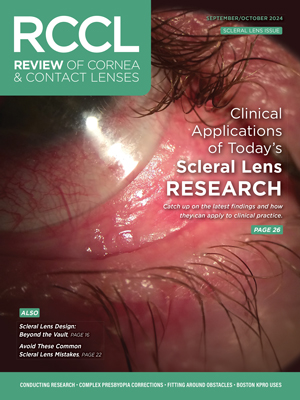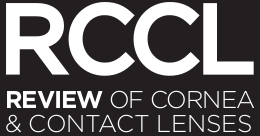• Certain cosmetic products may have a significant adverse effect on contact lens shape, wettability and optical performance, report studies published in the July 2015 Eye & Contact Lens.1,2 Researchers in Canada coated seven silicone hydrogel lens materials with nine marketed brands of cosmetics: three hand creams, three eye makeup removers and three mascaras.
Makeup removers were found to have the greatest impact on lens diameter, sagittal depth and base curve, while mascaras were most detrimental to optical performance and wettability. The researchers note that in some cases the effects were irreversible despite lens cleaning, and suggest further clinical studies are needed on the impact of cosmetics on silicone hydrogel lenses.
1. Luensmann D, Yu Mili, Yang J, et al. Impact of cosmetics on the physical dimension and optical performance of silicone hydrogel contact lenses. Eye & Contact Lens. 2015 Jul;41(4):218-227.
2. Srinivasan S, Otchere H, Yu Mili, et al. Impact of cosmetics on the surface properties of silicone hydrogel contact lenses. Eye & Contact Lens. 2015 Jul;41(4):228-235.
• Patients with good unilateral visual acuity may be better candidates for a Boston keratoprosthesis (BKPro) implant than previously believed, reports a study in the September 2015 Cornea.1 Previously, implantation was only considered for patients with severe bilateral visual impairment, due to long-term risk and low expectations.
In a retrospective analysis of 37 BKPro patients (28 for failed PK, nine primary BKPro implants) with pre-op BCVA of 20/40 or better and mean follow-up of 31.7 months, the most common complications were elevated IOP and retroprosthetic membrane formation. Ultimately, the researchers reported, half of patients achieved the minimum VA required for binocular functioning, with one-third achieving BCVA similar to the contralateral healthy eye.
1. Mustafa K, Kunal S, Rapuano J, et al. Long-term results of the boston keratoprosthesis for unilateral corneal disease. Cornea. 2015 Sep;34(9):1057-1062.

